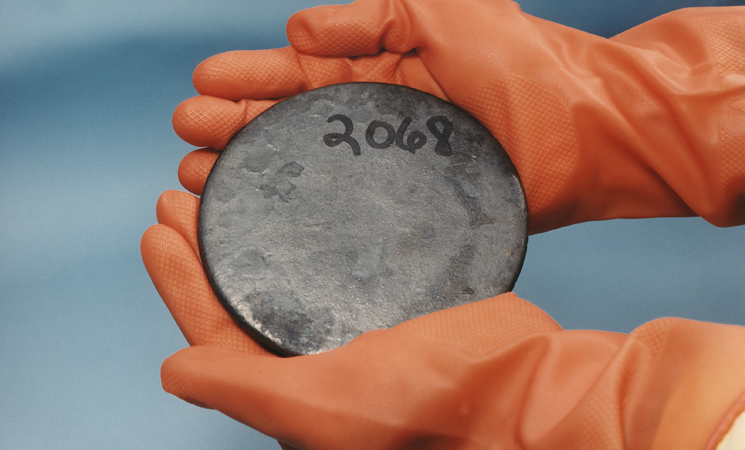
The U.S. Department of Energy will spend $2.7 billion to enhance the country’s clean energy capacity by boosting the domestic nuclear fuel supply chain.
Specifically, the DOE has issued a request for proposals to buy low-enriched uranium from domestic sources.
Low-enriched uranium is the basic material to fabricate nuclear fuel, consisting of uranium hexafluoride that is a white-grey, waxy solid at standard temperature and pressure. LEU is made by enriching naturally occurring uranium to improve its ability to produce energy.
The action is intended to help spur the “safe and responsible build-out of uranium enrichment capacity in the United States” and “provide a provide a reliable supply of commercial nuclear fuel to support the energy security and resilience of the American people and domestic industries, free from Russian influence,” the DOE said in its announcement.
The DOE said it plans to award at least two contracts. Proposals are due Aug. 26.
New sources of LEU could include new enrichment facilities or projects that expand the capacity of existing enrichment facilities, the DOE said. The agency said it intends to sell the LEU to utilities operating U.S. reactors to support clean energy generation and sever reliance on Russian imports.
Developing domestic capacity for LEU ensures an adequate fuel supply is available from trusted sources to maintain the current fleet of U.S. reactors and to build a strong base to supply future deployments of cutting-edge nuclear technologies both at home and abroad, the DOE said.
“Strengthening our domestic nuclear fuel supply chain will be critical as we continue to move from an energy system reliant on foreign suppliers and fossil fuels to one that embraces cleaner sources of power and domestic manufacturing,” Assistant to the President and National Climate Advisor Ali Zaidi said.
Photo courtesy of the DOE
The post DOE to spend $2.7 billion to bulk up low-enriched uranium supply appeared first on Government Market News.
